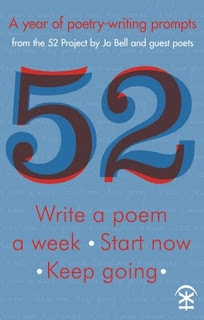I'm pretty sure the world will still be here tomorrow morning, but New Year's Eve always feels like a rush towards a terribly important global deadline. What if we don't make it? What if this is it?
So here's a final reading recommendation from a student for the end of the year: Ray Bradbury's aptly titled short story 'The Last Night of the World'. It's short, simple and rather beautiful. I like the silence after the last line.
It made me think of Neil Rollinson's poem 'A List of Requirements for the End of the World' which takes a different approach to impending apocalypse. Rollinson is "one of our boldest and best contemporary writers" according to Jo Bell, who also says that "his poetry pulls no punches on any subject". In this poem, sensual details are heaped up around each other, like the living room after a very adult sort of Christmas, perhaps.
A List of Requirements for the End of the World
A barrel of beer, two glasses,
a coal fire, toasting forks
and muffins, a little bacon, sausages.
Near the fire, a bed, a double bed
with cool white sheets, preferably silk.
Marital aids, handcuffs, ointments
and perfumes for later.
A porcelain bath on its legs,
Shostakovich’s string
quartets, Northumberland pipes,
on LP (not CD).
Chocolate, lots, with a high cocoa
solids content. Waitrose is best.
Soft-porn movies, a Polaroid,
some good, clean speed, or coke
if you can. A broken television
stuck in the corner. A radio jammed
on Hilversum. A girl
I’ve never met before.
A Saturday evening, dusk falling
in a flush of reds, and winter;
make it cold outside, freezing.
Try some snow, high winds.
Don’t forget the radiation:
give it a long half-life, have it
come through the window in a day or so.


